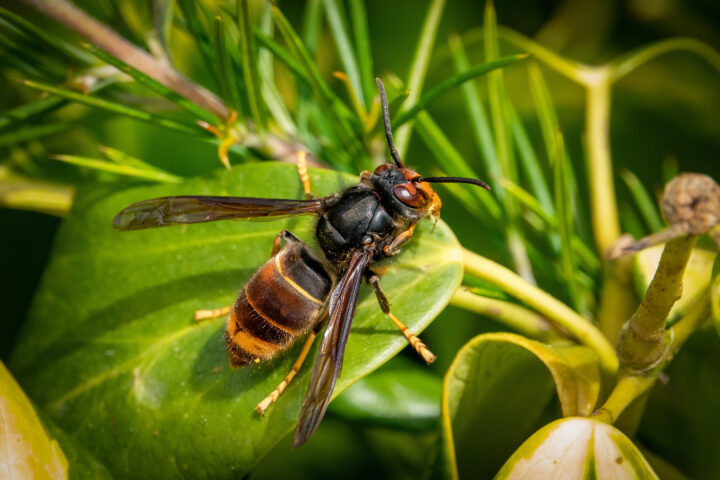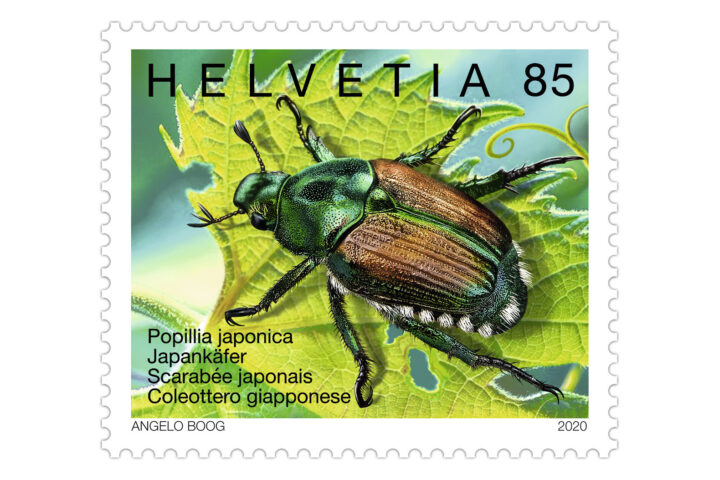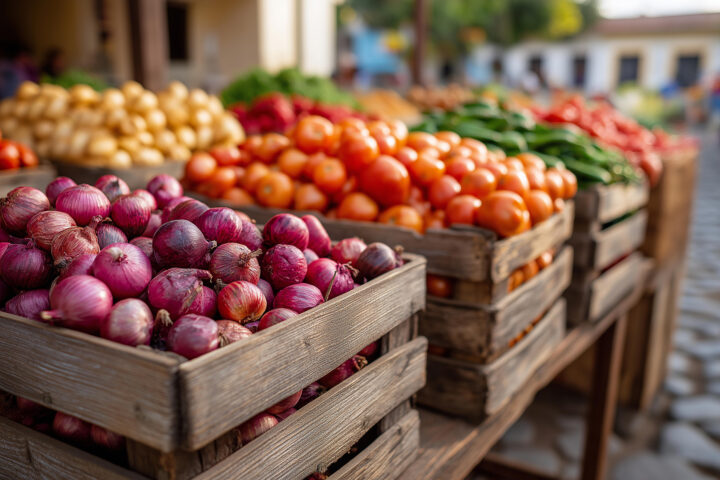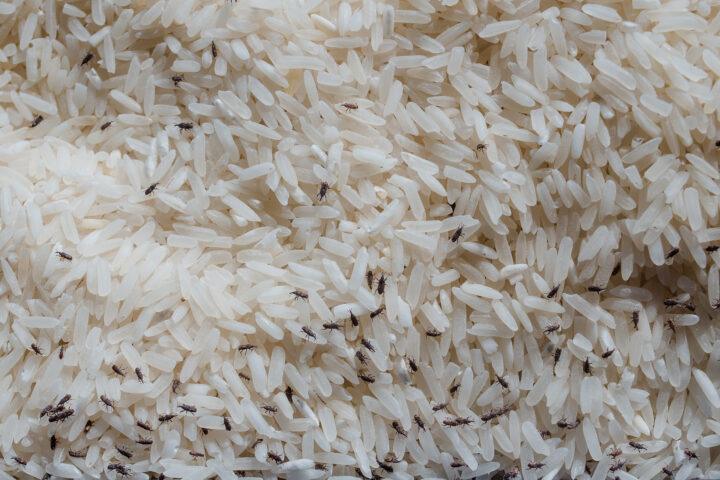
Three times more Asian hornets – biocides needed
The Asian hornet has been a threat to the native honeybee for several years. The situation continues to worsen. As new figures show, there were almost 4,000 sightings last year – a threefold increase in the number of Asian hornets. The pest is attacking biodiversity. Politicians are also alarmed.
Monday, June 30, 2025
It was first sighted in 2017 and since then it has been making life particularly difficult for honeybees. We are talking about the invasive Asian hornet. The pest has been spreading rapidly for years – and it is getting worse and worse. As official figures show, 3,829 sightings were reported last year – up from 1,399 the year before. This was reported by the ‘Tages Anzeiger’. This represents an increase of 174 per cent – in concrete terms, a tripling of the number.
In 2025, the alarm will still be sounding: The imported insect has also been spotted in the cantons of Lucerne, Zug and Schwyz. But it is not only in Switzerland that the Asian hornet is on the rise, but also in Germany. According to reports, it is spreading ‘unstoppably’.
‘A hell of a lot’
The situation has become precarious for honeybees. According to the Swiss Bee Health Service (Bienengesundheitsdienst, BGD), the Asian hornet's favourite prey is the native honeybee, which makes up to 85 per cent of its diet. Beekeepers are increasingly concerned – especially in view of the extent of the problem: as the report states, a single hornet's nest can consume ten kilograms of insects in a year. ‘A hell of a lot,’ as Martin Schwegler, president of the Swiss Beekeepers Association, told the newspaper. But the Asian hornet poses a massive threat not only to honeybees. The pest also attacks other pollinators – and thus endangers biodiversity and agriculture.
The pest spread rapidly as early as 2022
The hornet is native to Southeast Asia and first arrived in Europe in 2004 via transport routes. It was first observed in Switzerland in 2017. By 2022, the Asian hornet population in Switzerland had already expanded significantly, as reported in the ‘Schweizerische Bienen-Zeitung’. Overall, it has been sighted at 24 locations in eight cantons. Numerous sightings have also been reported in 2023. The reason for the rapid increase, as reported in the Swiss Bee Journal, was the mild winter, which led to the survival of a particularly large number of young queens that were able to found nests in spring.
Politicians are alarmed and are calling for the use of chemicals
In view of the rapid spread of the pest, politicians are also becoming increasingly alarmed: ‘The Asian hornet is dramatically on the rise,’ warns Basel-based Councillor of States Maya Graf in a motion. She says the federal government must act immediately. In a motion, Peter Hegglin, a member of the Central Council of Zug, also called for ‘action at last instead of fine words’. This spring, the Federal Office for the Environment is addressing the issue: it intends to comply with Hegglin's motion and present a proposal on how the use of chemicals against the Asian hornet could be increased.
Invasive pests on the advance
Invasive pests pose a growing threat to Swiss agriculture and biodiversity. Global trade, climate change and tourism are bringing more and more alien species into Switzerland, where they cause considerable damage to cultivated and wild plants.
Examples include the Japanese beetle, which is spreading rapidly and endangering native crops, the chestnut gall wasp, the spotted wing drosophila or the Asian longhorned beetle. They are all causing increasing concern for farmers and conservationists. Protecting plants from these threats remains one of the greatest challenges of our time. Effective pesticides, practical control strategies and consistent monitoring are essential to contain the spread of these pests.
Kindly note:
We, a non-native editorial team value clear and faultless communication. At times we have to prioritize speed over perfection, utilizing tools, that are still learning.
We are deepL sorry for any observed stylistic or spelling errors.
Related articles

Asian hornet threatens native honey bee
More and more invasive pests are spreading in Switzerland. The most recent example is the Asian hornet, which poses a major threat to the native honey bee. But other invasive species also threaten agriculture and biodiversity. Control measures are many and varied. But pesticides (plant protection products and biocides) remain an important tool in the fight against the pests.

This insect poses an existential threat to German farmers
The reed glasswing cicada is spreading rapidly and threatening potatoes, sugar beets and other crops. Its bacterial pathogens cause massive crop losses. Germany is currently particularly affected, but there are also increasing signs of a growing threat in Switzerland.

Traveling Japanese beetle threatens native plants
The Japanese beetle was first discovered in Switzerland in 2017 in Ticino. Now it has made it to the northern side of the Alps. After being found in Basel-Stadt and Solothurn, a larger population of the beetles has been found in Kloten for the first time. They are controlled with traps, but also pesticides.

Why cutting out synthetic pesticides will reduce food production
The UK’s action plan to reduce pesticide use could backfire, warns agronomist Greg Dawson: overly strict regulations may make domestic farming unprofitable – and increase the United Kingdom’s dependence on imports.

Approval studies for plant protection products are science-based
The approval of plant protection products in Switzerland is subject to strict legal requirements. Ultimately, this approval process is based on scientifically sound studies. These studies are financed by manufacturers, but they must comply with clearly defined governmental requirements and controls. The aim is to ensure reliability and independence.

Grain beetle eats its way through Swiss grain stores
The grain beetle is spreading in Swiss grain stores. Introduced via international trade, it threatens harvests and impairs food quality.

New problem: soft bugs, native pests discover fruit and vegetables
Soft bugs are spreading at lightning speed in fields and greenhouses in southern Germany. These pests are destroying fruit and vegetables and pushing agriculture to its limits. Effective plant protection products must be found urgently to safeguard harvests.

